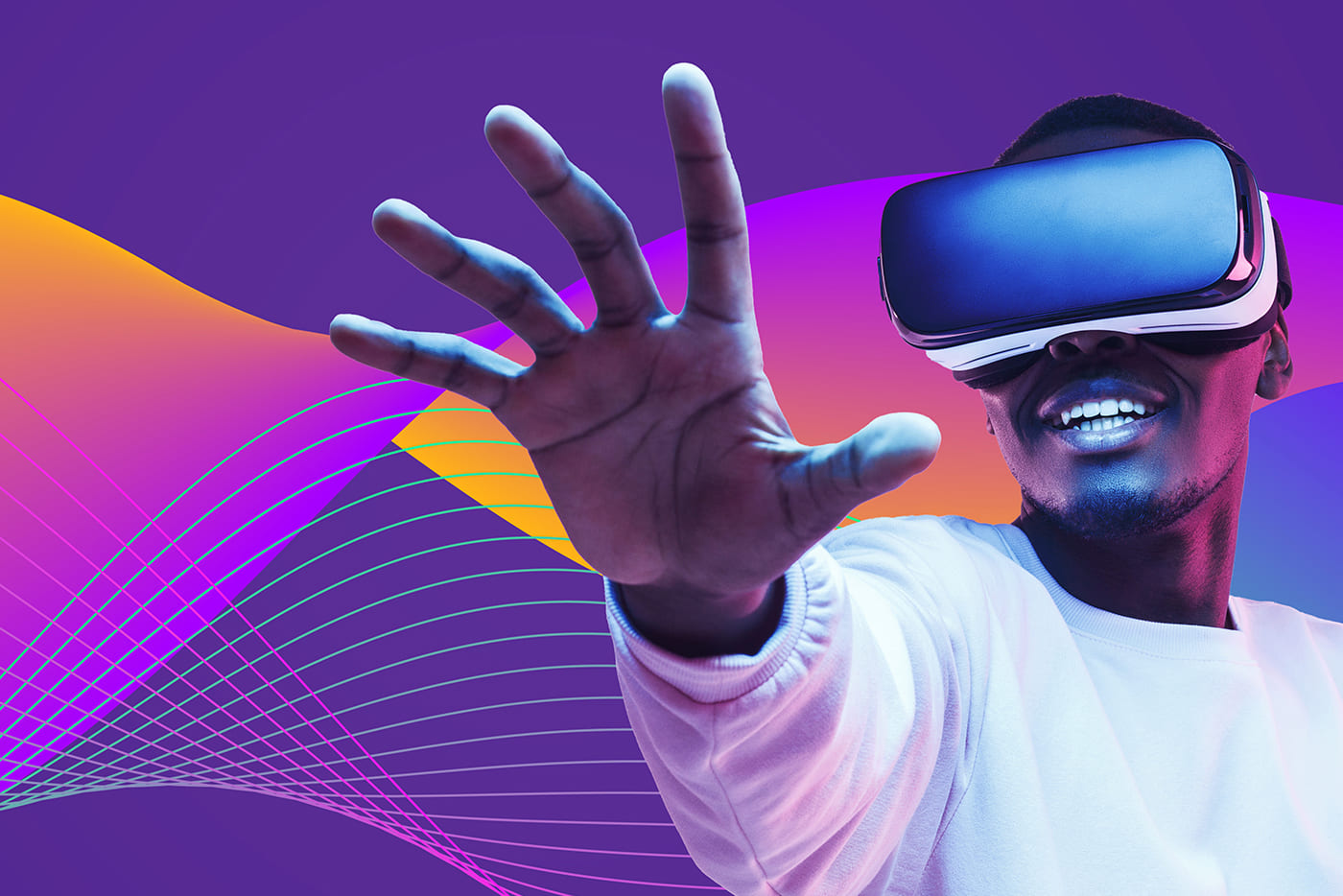The Amazing Ways Nike Is Using The Metaverse, Web3 And NFTs
13 June 2022
Sports manufacturer Nike has always been at the forefront of digital transformation. Artificial intelligence (AI), e-commerce, and in-store experiential technology have been integral to the brand’s strategy for many years. More recently, it has moved to capitalize on the excitement around new concepts such as the metaverse, NFTs, and web3. Here’s an overview of some of the ways Nike leverages these technologies to remain relevant and on the cultural cutting-edge.

Nike and the Metaverse
Nikeland is Nike’s purpose-built metaverse space that uses the Roblox platform to allow its fans to meet, socialize, take part in promotions and engage with a whole range of brand experiences.
“Metaverse” is a term used to describe the new breed of platform-based virtual worlds, which users explore and interact with as avatars of themselves. Of course, there have always been virtual spaces where users can play games, chat and socialize, or work. What makes a metaverse environment different is that we can do any or all of those things, plus a whole lot more, within one persistent environment and set of rules.
According to Nike, 7 million visitors have spent time in Nikeland since it launched in November 2021. While there, they have been able to enjoy celebrity appearances from sports stars, including LeBron James, as well as buy exclusive digital products to decorate their avatars with. The items are not restricted to Nikeworld and can be worn as their avatars travel to other Roblox environments – essentially turning the visitors into digital brand ambassadors. They can also test their reactions and strategy skills with a number of games, with the opportunity to win even more products and rewards.
Each visitor to Nikeland also becomes a custodian of their own "yard" – a personal space within Nikeworld that can be used to show off their collectibles and decorated to suit their personality.
Nike is leading the way when it comes to brands demonstrating that a “sell the lifestyle” ethos can work just as effectively in the digital world as it does in the real world. In this way, it has successfully transplanted its ability to cultivate an aspirational mindset into the virtual domain, both in terms of desirable, fashionable products that users can own and through competition, challenges, and the ability to show off high scores and achievements. This means it serves as a great demonstration of a brand that has aligned digital transformation with its existing identity and ideals.
Web3 and NFTs
Nike was also very quick to capitalize on the trend of NFTs. These are tokens that live on a blockchain and can be used to create digital assets that are essentially unique and one-of-a-kind. Whereas most digital items (a JPG image, or an MP3 tune, for example) can be duplicated an infinite amount of times, an NFT is a unique piece of digital data that can be attached to any other digital item, theoretically imparting that uniqueness onto the item.
Nike demonstrated how keen it was on the idea of NFTs in December last year when it purchased RTFKT Studios, a maker of “next-generation” NFT collectibles. It’s not hard to understand the appeal of the studio to the sportswear manufacturer when you learn that it managed to sell 600 pairs of NFT sneakers in just six minutes, for a total of $3.1 million.
Nike’s first collection of NFT sneakers created in conjunction with RTFKT Studios is called CryotoKicks Dunk Genesis, and once they own them, users can customize them using "skin vials." These vials can be created by different designers, adding special effects and patterns to the base sneakers.
This is an indication that Nike clearly understands the value of personalization to consumers today – particularly younger millennials and Generation Z, many of whom value unique, one-of-a-kind or customized items over identikit, mass-produced goods.
Experiential Stores
Nike's latest adventures in digital transformation aren't solely limited to virtual and digital worlds. Its real-world, bricks 'n' mortar stores are also becoming showcases for ways the brand is leveraging new technology.
In its New York flagship store, the idea is that encouraging users to engage with and experience the brand through sport and technology is equally important as encouraging them to buy products. They can shoot hoops on the in-store baseball court, complete with cameras and video screens to capture and playback highlights in real-time. Or they can work up a sweat on a treadmill that simulates running in the great outdoors. They can also customize shoes to look however they like before buying them and get advice from trainers and coaches who are always on hand.
The keyword here is experience. In a world where consumers say that having a positive experience with a brand is more important than factors such as price when it comes to making buying decisions, Nike is hoping that technology will create memorable shopping and leisure experiences that will build strong bonds between customers and the brand. This will mean they will be more likely to look for the famous swoosh logo next time they are in the market for sporting goods – of the real or virtual variety.
Related Articles
Will Generative AI Help Us Solve The Climate Crisis (Or Will It Make It Worse)?
You might be surprised to learn that AI is already proving to be a powerful weapon in the fight against climate change.[...]
Sign up to Stay in Touch!
Bernard Marr is a world-renowned futurist, influencer and thought leader in the fields of business and technology, with a passion for using technology for the good of humanity.
He is a best-selling author of over 20 books, writes a regular column for Forbes and advises and coaches many of the world’s best-known organisations.
He has a combined following of 4 million people across his social media channels and newsletters and was ranked by LinkedIn as one of the top 5 business influencers in the world.
Bernard’s latest book is ‘Generative AI in Practice’.






Social Media